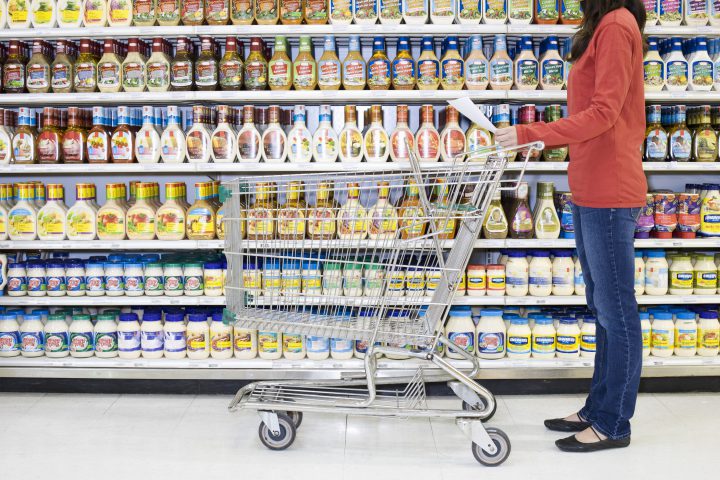Having multiple dates on food labels can be difficult to decipher — and studies show it can lead to increased food waste.

That’s why some of the world’s most prominent food companies banded together to sign a call to action, creating targets to overhaul the way food is labelled.
READ MORE: Ontario looking at banning food waste in garbage
At the Consumer Goods Forum (CGF) in New York this week, held on the sidelines of the United Nations General Assembly, corporations such as Kellogg, Nestlé, Unilever and Campbell Soup committed to simplifying food labels as part of an international effort.
WATCH: Canadians concerned over food label accuracy, study finds

The companies hope to do this in a few ways, with a target of the year 2020. First, they aim to decrease the number of labels on food packages.
They also want to limit the phrases used — meaning companies can only use one expiration date (such as “Use by”), and one food quality indication date (such as “best if used by”).

Get weekly health news
Part of the initiative is also aimed at increasing consumer awareness about what labelling means.
WATCH: Reading food labels is easier than you think

In a press release, the CGF says companies should partner with non-profit organizations and governments to educate buyers.
“Education efforts could include in-store displays, web materials and public service announcements. Many consumers don’t know, for example, that many products are still safe to eat past the ‘Best if used by’ date,” the press release reads.
Knowing how to read food labels would decrease the amount waste produced by “confusion” over dates, an executive at Kellogg said.
“As a global food company, we work to reduce hunger, improve nutrition and protect the planet,” Maria Fernanda Mejia, a senior vice-president at Kellogg explained.
A 2013 study by Harvard Law School and the Natural Resources Defense Council found that dates printed on packaged foods often confuse consumers, leading them to trash their food.
READ MORE: Best before dates lead to waste by consumers
The call to action is meant to help meet the UN’s Sustainable Development Goals, but one expert said more changes are needed to meet the 2030 goals.
“2030 is only 13 years away, and more is needed,” Liz Goodwin, the director of Food Loss and Waste at World Resources Institute, said.
“We now have a roadmap for how to cut in half the more than 1 billion tons of food that goes uneaten each year, and it’s vital that governments and the private sector everywhere put it to use.”
What do the dates mean?
According to the Canadian Food Inspection Agency (CFIA), a “best before” date tells consumers when the “durable life period” of an unopened food product ends. Before this date, products retain their freshness, taste, and nutritional value.
However, it warns “best before” dates do not guarantee safety.
Expiration dates are different, the agency says, and only required on products with “strict compositional and nutritional specifications,” such as milk and nutritional supplements.
“Food should not be bought, sold or eaten if the expiration date has passed. It should be discarded.”
Other dates such as “sell by,” “prepared by,” “freeze by,” and “manufactured on” can be used by companies voluntarily, as long as they don’t mislead the consumer, the CFIA says.








Comments